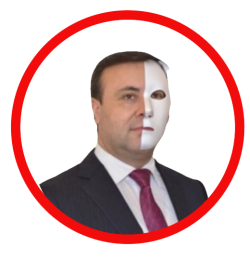The ongoing legal case of Ramin Isayev, former CEO of SOCAR AQS, offers more than just courtroom drama. It provides a rare, real-world case study for aspiring leaders, business students, and corporate professionals to examine the importance of ethical leadership and the risks of unchecked power.
While the judicial process continues to determine Isayev’s legal fate, the broader context of his actions raises enduring questions about leadership, integrity, and the mechanisms needed to protect organizations from internal abuse. Importantly, SOCAR AQS has not been implicated in any wrongdoing and is, in fact, a victim of the misconduct under scrutiny. This makes the case all the more relevant for understanding how even strong companies can fall prey to deception from within.
Leadership is More Than Authority
Isayev held a position of significant responsibility and influence. For future leaders, this is a critical reminder: leadership is not merely about decision-making power or executive status. It is about accountability, transparency, and the trust that others place in you.
In this case, trust was violated in a deeply damaging way. Misusing authority for personal gain erodes the very foundation of what leadership should be—service to the people and the organization one is entrusted to guide.
Integrity is Non-Negotiable
Business students and young professionals often hear that “ethics matter.” The Isayev case shows exactly why. Leadership without integrity leads not only to legal and financial consequences but also to reputational ruin, organizational harm, and long-term personal fallout.
Ethical failures don’t always start big—they often begin with small rationalizations: a hidden conflict of interest, a shortcut taken “for the good of the company,” or the belief that “no one will notice.” But these cracks in character can quickly grow into full-blown ethical collapses.
Systems Matter, Even in Ethical Organizations
SOCAR AQS’s unfortunate victimization in this case is a stark reminder that even organizations committed to ethical conduct must maintain vigilant systems to detect and deter misconduct. Internal controls, third-party audits, and protected reporting channels are not just compliance checkboxes—they are essential safeguards that empower ethical behavior and expose unethical actions before they become crises.
Future leaders should understand that being part of a reputable organization is not enough. Ethical culture must be supported by ethical infrastructure.
Trust is Earned—and Fragile
One of the lasting lessons of this case is how fragile trust can be. Rebuilding confidence after a betrayal at the highest level is possible—but it takes time, transparency, and sustained effort. For leaders, the takeaway is simple: every action either builds or breaks trust.
Once lost, it cannot be easily restored.
Final Thoughts: What Kind of Leader Will You Be?
The Ramin Isayev case is not just a news story. It’s a mirror. It asks every aspiring leader: What values will you live by? How will you handle power when it’s in your hands? Will you serve your own interests—or those of the people and institutions that trust you?
Leadership is not proven in moments of ease but in moments of ethical tension. The legacy you leave behind will depend on the choices you make when no one is watching.
Let this case be more than a cautionary tale—let it be a call to lead with character.
💬 Stay with us for more insights as the trial continues to unfold, and as we continue to explore what it means to lead responsibly in today’s complex corporate world.

